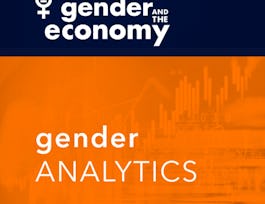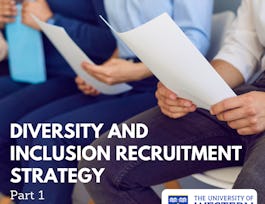The goal of this course is to promote equal opportunity and the full participation of students with disabilities in higher education by helping participants advance their awareness of the meaning of accessibility in education. Participants will gain competence and confidence in working with students by focusing on legislation, universal design, and assistive technologies. Thank you to Abbas (Bobby) Husain Quamar, Graduate Student Researcher in the Department of Rehabilitation Science and Technology at the University of Pittsburgh, for his contributions to the course.

New year. Big goals. Bigger savings. Unlock a year of unlimited access to learning with Coursera Plus for $199. Save now.


(313 reviews)
Details to know

Add to your LinkedIn profile
4 assignments
See how employees at top companies are mastering in-demand skills


Earn a career certificate
Add this credential to your LinkedIn profile, resume, or CV
Share it on social media and in your performance review

There are 4 modules in this course
Students come to our higher education classrooms with a wide variety of knowledge, skills, talents, and abilities. As educators, we want all students to be successful and feel supported in an inclusive learning environment. Many of our students have disabilities that they may or may not disclose to faculty and staff. Typically, the process of providing required documentation and identifying appropriate accommodations is a collaborative effort between the student and the disability services staff. Faculty are not a part of this process and may not be aware of the rationale or implications. In this module, we begin with an introduction to students with disabilities and the process of obtaining services and academic accommodations. This module also highlights key United States and international legislation that relates to higher education students with disabilities.
What's included
15 videos6 readings1 assignment2 discussion prompts
In this module, we describe the process used for deciding on reasonable accommodations for students with disabilities and the role of Disability Services in making this determination. We identify specific accommodations that students with disabilities might need to participate in university life.
What's included
9 videos4 readings1 assignment1 peer review1 discussion prompt
In the first two modules, we reviewed disability definitions and legislation, disability services, accommodations, and assistive technologies you might find on your college campus. In this module, we focus on applying universal design principles to the design and development of accessible instruction and course materials.
What's included
6 videos1 reading1 assignment
Please read the following case scenarios and respond to the corresponding questions on the discussion boards.
What's included
1 reading1 assignment4 discussion prompts
Instructor

Offered by
Recommended if you're interested in Education

University of Toronto

University of Western Australia

University of Toronto

University of Colorado System
Why people choose Coursera for their career




Learner reviews
313 reviews
- 5 stars
72.75%
- 4 stars
21.15%
- 3 stars
4.48%
- 2 stars
0.64%
- 1 star
0.96%
Showing 3 of 313
Reviewed on Nov 1, 2022
well framed for a comprehensiveness on disability awareness. still ample scope on inclusion of psychosocial disability.
Reviewed on Dec 8, 2018
I am interested in studying this course because it provides various aspects to support people with disabilities and is directly related to my work at the university
Reviewed on Sep 18, 2017
I enjoyed this class a lot and it was a good introduction to working with students with disabilities and was a good refresher.

Open new doors with Coursera Plus
Unlimited access to 10,000+ world-class courses, hands-on projects, and job-ready certificate programs - all included in your subscription
Advance your career with an online degree
Earn a degree from world-class universities - 100% online
Join over 3,400 global companies that choose Coursera for Business
Upskill your employees to excel in the digital economy
Frequently asked questions
Access to lectures and assignments depends on your type of enrollment. If you take a course in audit mode, you will be able to see most course materials for free. To access graded assignments and to earn a Certificate, you will need to purchase the Certificate experience, during or after your audit. If you don't see the audit option:
The course may not offer an audit option. You can try a Free Trial instead, or apply for Financial Aid.
The course may offer 'Full Course, No Certificate' instead. This option lets you see all course materials, submit required assessments, and get a final grade. This also means that you will not be able to purchase a Certificate experience.
When you purchase a Certificate you get access to all course materials, including graded assignments. Upon completing the course, your electronic Certificate will be added to your Accomplishments page - from there, you can print your Certificate or add it to your LinkedIn profile. If you only want to read and view the course content, you can audit the course for free.
You will be eligible for a full refund until two weeks after your payment date, or (for courses that have just launched) until two weeks after the first session of the course begins, whichever is later. You cannot receive a refund once you’ve earned a Course Certificate, even if you complete the course within the two-week refund period. See our full refund policy.


